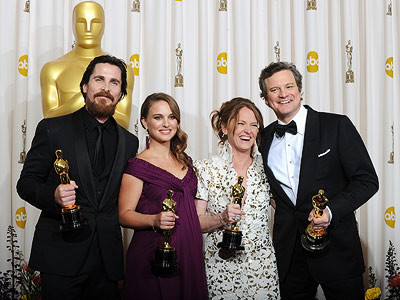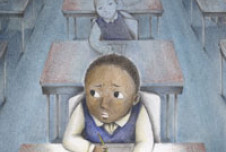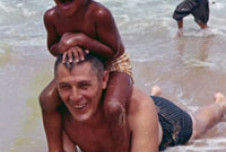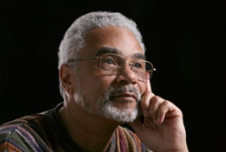The Academy Awards are now behind us, but last night’s Oscar ceremony may have stoked an ongoing controversy around Hollywood and racism.
Amid recent, alarmed news reports of a “whitewashed” Oscar season—in which none of the major Academy Award nominees were members of racial or ethnic minority groups—concerns abound about whether and how much Hollywood is racist.
Is Hollywood blatantly racist for not including a more diverse set of actors and actresses, as well as movies, in its lists of nominees? My strong guess is that privately, people are fuming at the suggestion. Are we supposed to nominate lesser performances for the sake of keeping up appearances? Do we give up our standards of fine acting for the sake of being politically correct? How is that being fair? You might hear echos of arguments against affirmative action.
I’m not a movie buff, but I’d be willing to bet that this year’s Oscar nominees were, in fact, the best performances of 2010. And I don’t think the nominees should change only for the sake of avoiding the “whitewashed” label. What I do think needs to change, however, is the false-choice mentality about diversity versus quality. Rather than change who is eligible for awards for the sake of cosmetics, we need to reform the process that leads to the awards so that the best performances are both diverse and stellar.
To explain what I mean, consider this analogy from my own field, the psychology of prejudice. Historically, psychologists in my area of study have asked, How do we reduce and combat racism? This is a laudable goal, of course, but the focus on understanding the problem from the perspective of those who stereotype, rather than those who are targets of stereotypes, reflects the historical realities of who was asking the question.
 The Kids Are All White: The Academy Awards were criticized this year for a lack of diversity among nominees.
The Kids Are All White: The Academy Awards were criticized this year for a lack of diversity among nominees.
Over the past 20 years, the demographics of the scientists have slowly changed, and with this structural change, the types of questions being asked have come to reflect a wider swath of human experience. This is why I encourage both majority and minority students in my classes to go into research psychology, because they are the agents of change.
In a similar way, the types of movies and actors that end up on the big screen, and are eligible for an Oscar, don’t reflect bias as much as they mirror a particular set of life experiences and perspectives. The truth is that people make movies, act in movies, and pay to see movies that are of interest to them, and which connect in some meaningful way to their life experiences. The stories that are likely to be told and promulgated begin with the people who dream up the stories, the plays, the scripts.
Ask yourself: If you don’t have a diverse group of writers, which life stories are most likely to be told? The same question applies to all the other professions responsible for bringing stories to life—the publishers, the directors, the producers. In order for a story to connect with people, it first has to be dreamt up and developed—and again, without diversity, a certain type of narrative is likely to be (or not be!) developed. Then you move on to the studios, the big-time producers—again, another set of gatekeepers for art who are likely evaluating it fairly for its artistic value, but who are drawing from a limited spectrum of the human experience.
By the time you get to the Oscar race, the “whitewashing” is less the fault of anybody consciously or unconsciously being racist; rather, the bias is inevitable through a lack of diversity and representation from the very beginning stages. We need not give up quality for diversity. What we need instead is a commitment to diversity in the film schools, the writing workshops, even the grade school drama classes.
We cannot coax powerful stories and powerful performances from the top down. It has to be a bottom up strategy, where we recognize that a commitment to diversity is not just for political correctness but because it enriches the diversity of experiences that we all share. That makes for better stories, better entertainment—and will help us steer clear of cosmetic diversity without substance.
Imagine how much more fertile Hollywood would be with a more diverse set of stories. That would be something to stand in line for.








Comments